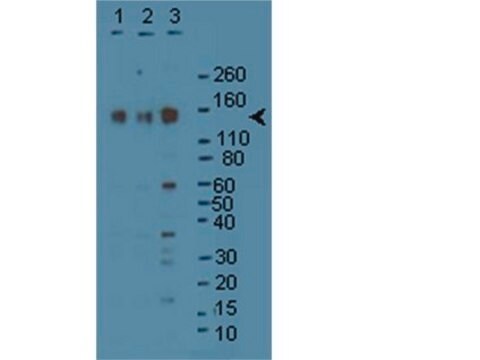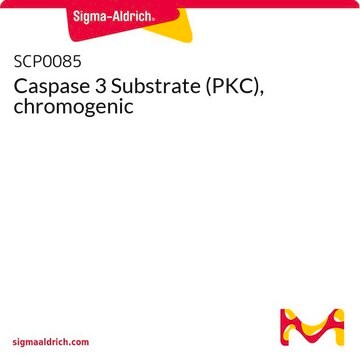D5167
Monoclonal Anti-Dynein (Intermediate Chain) antibody produced in mouse
clone 70.1, ascites fluid
Sinónimos:
Anti-CILD1, Anti-DIC1, Anti-ICS1, Anti-PCD
About This Item
Productos recomendados
biological source
mouse
Quality Level
conjugate
unconjugated
antibody form
ascites fluid
antibody product type
primary antibodies
clone
70.1, monoclonal
contains
15 mM sodium azide
species reactivity
marsupial, hamster, human, Indian muntjac (Muntiacus muntjac vaginalis), chicken, rat, frog
technique(s)
immunoprecipitation (IP): suitable
indirect ELISA: suitable
western blot: 1:2,000 using a chick brain extract
isotype
IgM
UniProt accession no.
shipped in
dry ice
storage temp.
−20°C
target post-translational modification
unmodified
Gene Information
human ... DNAI1(27019) , DNAI2(64446)
rat ... Dnai2(360654)
General description
Immunogen
Application
- perturbation assays
- western blotting
- immunofluorescence microscopy
- enzyme linked immunosorbent assay (ELISA)
- dot blot
- immunocytochemistry
- immunopurification
Biochem/physiol Actions
Disclaimer
¿No encuentra el producto adecuado?
Pruebe nuestro Herramienta de selección de productos.
Storage Class
12 - Non Combustible Liquids
wgk_germany
nwg
flash_point_f
Not applicable
flash_point_c
Not applicable
Certificados de análisis (COA)
Busque Certificados de análisis (COA) introduciendo el número de lote del producto. Los números de lote se encuentran en la etiqueta del producto después de las palabras «Lot» o «Batch»
¿Ya tiene este producto?
Encuentre la documentación para los productos que ha comprado recientemente en la Biblioteca de documentos.
Nuestro equipo de científicos tiene experiencia en todas las áreas de investigación: Ciencias de la vida, Ciencia de los materiales, Síntesis química, Cromatografía, Analítica y muchas otras.
Póngase en contacto con el Servicio técnico







